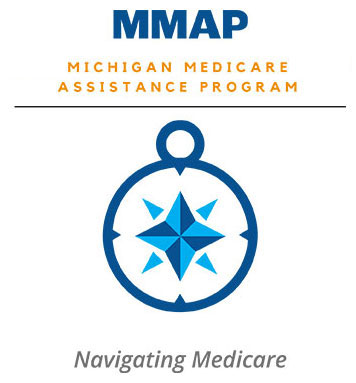Information about the Medicare Part D prescription drug plan is in the news just about every day. If you’re considering signing up for one of the plans being offered, chances are you are gathering lots of information about your drugs, your drug coverage, and the available prescription plan options, and making lists to determine your needs.
Unfortunately, not everyone who contacts you about Medicare Part D has the best intentions. Scam artists also follow the headlines, and they are reportedly contacting eligible people claiming to represent a Medicare Part D provider. All they really want is your personal information, like your Social Security number or your checking or credit card account numbers, which they use to try to commit financial fraud.
The Federal Trade Commission (FTC), the nation’s consumer protection agency, and the Centers for Medicare & Medicaid Services, the agency that runs the prescription drug program, want you to know how to protect yourself and your personal information as you make important choices about your health care coverage.
What Providers May and May Not Do
To protect consumers, the law is very specific about what Medicare prescription drug plan providers may and may not do. For example:
• Medicare Part D plan representatives may not market through unsolicited contact, including:
o Telemarketing calls, including voice mail messages;
o Emails or texts;
o Door-to-door solicitations, including leaflets or flyers at your home or car;
o Approaching you in common areas, like parking lots, hallways, lobbies, and sidewalks.
• Medicare Part D plan representatives may enroll you on the phone only if YOU call them. You can be on the safe side by calling Medicare first (toll-free at 1-800-633-4227 — 1-800-MEDICARE) to verify the legitimacy of any provider you may be tempted to call. TTY users should call 1-877-486-2048. The Medicare phone line runs 24 hours a day. Medicare doesn’t recommend any particular prescription drug plan; it simply verifies that a provider is legitimate.
• Providers may come to your home only if you have invited them to do so.
• Providers may ask you how you want to pay your premiums, but they may not ask you for payment on the phone or through the internet.
• You may set up a direct payment plan if you want to, but the provider first has to mail you the information to do so.
• Legitimate providers will not charge you any fees to enroll in a plan.
Protecting Your Personal Information
It’s important to protect your personal information, even when you are shopping for a prescription drug plan. If your personal information — your Social Security, Medicare ID, credit card or bank account numbers — gets into the wrong hands, it can be misused. You could be left dealing with identity theft, which can take time, money, and patience to undo. To protect your personal information, the FTC recommends that you:
• Keep all your personal information close. Don’t give it out until you are sure that a company is working with Medicare and their product is approved by Medicare. Remember that if you decide to join a Medicare prescription drug plan, you will have to give your Medicare number.
• Don’t talk to anyone who comes to your door with unsolicited “offers” of drug coverage. The law says prescription drug benefit companies cannot visit your home unless you’ve given them permission to do so.
• Resist pressure to join a Medicare prescription drug plan. You have from October 15 to December 7 of every year to decide on a plan for the following year. That is plenty of time to consider legitimate offers. Enrolling is not mandatory. Whether you sign up has no effect on your other benefits from Medicare (Parts A and B) or from Social Security.
• Don’t sign up for a plan on the phone unless YOU make the call.
• Take a friend or family member with you if you decide to attend a sales pitch.
• Report scams and suspicious activity to Medicare. If you think someone is misusing your personal information, call Medicare at 1-800-633-4227, the U.S. Department of Health and Human Services Fraud Hotline at 1-800-447-8477, or the FTC at 1-877-382-4357. TTY users should call the FTC at 1-866-653-4261. The FTC enters fraud-related complaints into Consumer Sentinel, a secure online database available to hundreds of civil and criminal law enforcement agencies in the U.S. and abroad.
For More Information
To learn more about Medicare Part D and the plans available in your area, call 1-800-MEDICARE (Medicare at 1-800-633-4227) or visit medicare.gov. Your State Health Insurance Assistance Program (SHIP) also can point you to local resources that offer free customized advice about picking a drug plan. Visit eldercare.gov or call toll-free 1-800-677-1116.
To learn how to protect your personal information, visit ftc.gov/idtheft or call 1-877-ID-THEFT (1-877-438-4338). The FTC works for the consumer to prevent fraudulent, deceptive and unfair business practices in the marketplace and to provide information to help consumers spot, stop and avoid them.
Produced in cooperation with the Centers for Medicare & Medicaid Services.
